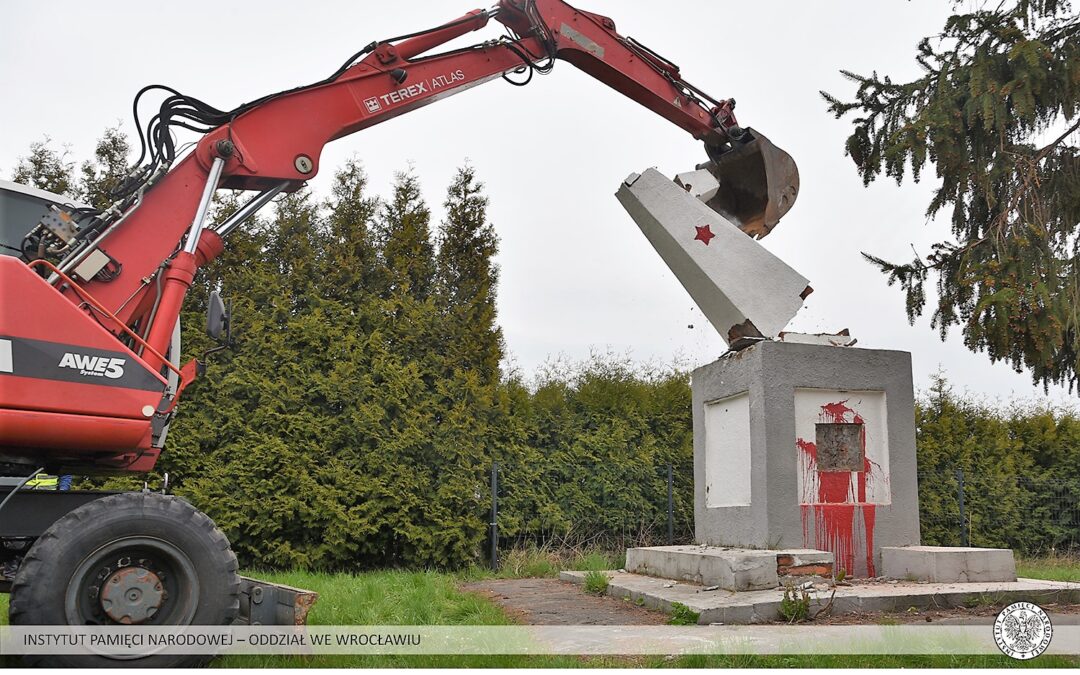Poland has removed 20 communist-era memorials to the Soviet Red Army since Russia’s invasion of Ukraine, says the head of the country’s state historical body. He has welcomed the fact that local officials are now more willing to carry out such actions, but notes that there are still 40 monuments to be dismantled.
In 2016, the national-conservative Law and Justice (PiS) government passed a law requiring local authorities to “decommunise” public spaces by removing objects and names that “propagate communism or other totalitarian systems”. Poland was under Soviet-backed communist rule from 1945 to 1989.
While that has led to many monuments being removed and street names being changed, some still remain. However, Russia’s invasion of Ukraine in February pushed the state Institute of National Remembrance (IPN) to renew its drive to eliminate objects seen as honouring the communist past.
Another Soviet memorial is destroyed in Poland, this time in the town of Malbork.
Since Russia's invasion of Ukraine, Poland's state Institute of National Remembrance has encouraged the removal of remaining Red Army monuments pic.twitter.com/0Yv3rO5qYP
— Daniel Tilles (@danieltilles1) August 10, 2022
“In the last six months, we have managed to liquidate 20 monuments dedicated to soldiers of the Red Army,” Karol Nawrocki, the head of the IPN, told Gazeta Pomorska. Given the previous slow pace of such removals since the fall of communism in 1989, that is “a good result”, he added.
Among the memorials to be torn down this year are those in Brzeg, Malbork, Siedlec and Międzybłocie.
“These Soviet commemorations should have disappeared from our public space a long time ago, they are a symbol of the betrayal and suffering of Poles,” said Nawrocki, who noted that “there are still 40 left” to be dealt with.
For more on renewed efforts to remove Soviet monuments in Poland following Russia's invasion of Ukraine, see our report from yesterday https://t.co/B8l3ShwF2f
— Notes from Poland 🇵🇱 (@notesfrompoland) April 20, 2022
“The war in Ukraine has certainly encouraged local officials to decide to eliminate the monuments, especially those officials for whom, embarrassingly, the fact that there were 50,000 Polish victims [of communism] after 1945 was not enough,” he added. “Now, the resistance to the liquidation of these monuments is no longer visible.”
Russia has often criticised the removal of Soviet monuments in Poland, arguing that it not only dishonours the memory of those who, in Russia’s historical narrative, “liberated” the country but also violates a bilateral agreement.
Poland points out, however, that that agreement relates only to graves and war cemeteries, not separate monuments and symbols.
Main image credit: IPN Wroclaw

Daniel Tilles is editor-in-chief of Notes from Poland. He has written on Polish affairs for a wide range of publications, including Foreign Policy, POLITICO Europe, EUobserver and Dziennik Gazeta Prawna.




















